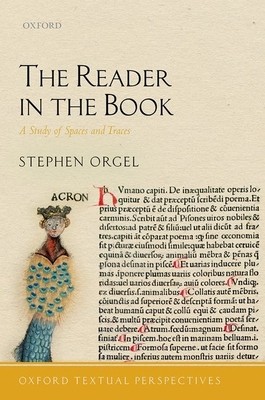
- We will send in 10–14 business days.
- Author: Stephen Orgel
- Publisher: Academic
- ISBN-10: 0198737564
- ISBN-13: 9780198737568
- Format: 14 x 20.6 x 1.8 cm, kieti viršeliai
- Language: English
- SAVE -10% with code: EXTRA
Reviews
Description
The Reader in the Book is concerned with a particular aspect of the history of the book, an archeology and sociology of the use of margins and other blank spaces. One of the most commonplace aspects of old books is the fact that people wrote in them, something that, until very recently, has infuriated modern collectors and librarians. But these inscriptions constitute a significant dimension of the book's history, and what readers did to books often added to their value. Sometimes marks in books have no relation to the subject of the book, merely names, dates, prices paid; blank spaces were used for pen trials and doing sums, and flyleaves are occasionally the repository of records of various kinds. The Reader in the Book deals with that special class of books in which the text and marginalia are in intense communication with each other, in which reading constitutes an active and sometimes adversarial engagement with the book. The major examples are works that are either classics or were classics in their own time; but they are seen here as contemporaries read them, without the benefit of centuries of commentary and critical guidance. The underlying question is at what point marginalia, the legible incorporation of the work of reading into the text of the book, became a way of defacing it rather than of increasing its value-why did we want books to lose their history?
EXTRA 10 % discount with code: EXTRA
The promotion ends in 23d.18:17:30
The discount code is valid when purchasing from 10 €. Discounts do not stack.
- Author: Stephen Orgel
- Publisher: Academic
- ISBN-10: 0198737564
- ISBN-13: 9780198737568
- Format: 14 x 20.6 x 1.8 cm, kieti viršeliai
- Language: English English
The Reader in the Book is concerned with a particular aspect of the history of the book, an archeology and sociology of the use of margins and other blank spaces. One of the most commonplace aspects of old books is the fact that people wrote in them, something that, until very recently, has infuriated modern collectors and librarians. But these inscriptions constitute a significant dimension of the book's history, and what readers did to books often added to their value. Sometimes marks in books have no relation to the subject of the book, merely names, dates, prices paid; blank spaces were used for pen trials and doing sums, and flyleaves are occasionally the repository of records of various kinds. The Reader in the Book deals with that special class of books in which the text and marginalia are in intense communication with each other, in which reading constitutes an active and sometimes adversarial engagement with the book. The major examples are works that are either classics or were classics in their own time; but they are seen here as contemporaries read them, without the benefit of centuries of commentary and critical guidance. The underlying question is at what point marginalia, the legible incorporation of the work of reading into the text of the book, became a way of defacing it rather than of increasing its value-why did we want books to lose their history?


Reviews